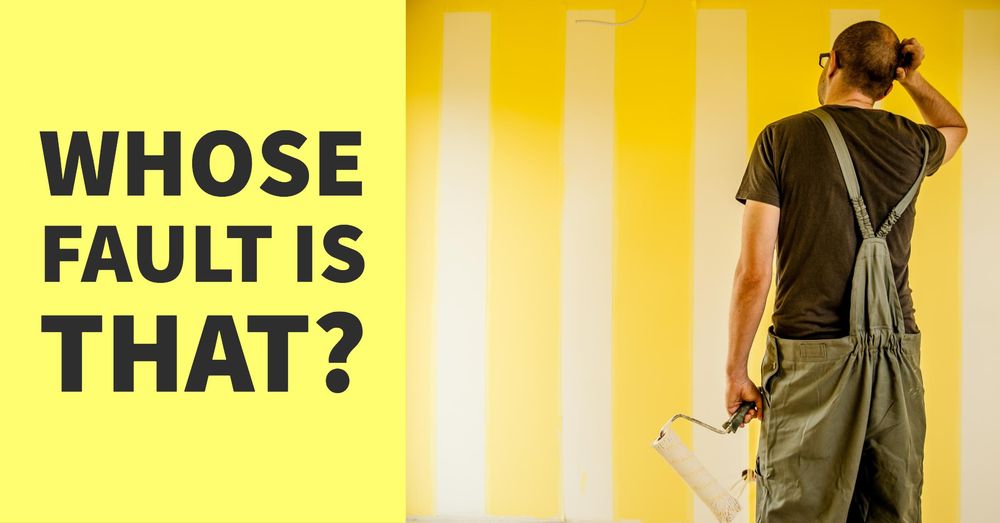
Jim Mora: Now today, the people who rent their houses were heard. The People’s Review of Renting released its collection of hundreds of stories of sad renting experiences.
Now the rights of renters versus the rights of landlords is what we want to discuss.
Full Audio Interview (transcription below):
Tenant advocacy group Renters Unite has called for stern regulation of landlords.
They should be licensed. Their properties need to be subject to Warrant of Fitness checks. Renters Unite wants laws limiting annual rent rises. It wants tenants to be allowed to stay as long as they like unless they substantially damage the property or don’t pay the rent. Tenancy should continue under new owners.
There’s a lack of enforcement of the law which already requires all rented homes to be dry and in reasonable repair. Local councils should be funded to carry out the Warrant of Fitness checks. And take a breath. We’re going to talk to Alan Johnson shortly. What do you reckon?
Assistant Jim: Do you know what? It’s very hard because you absolutely can see arguments from renters and from landlords. And if we, maybe, cast aside– there will always be extreme cases of bad landlords and bad renters.
But I have no problem with a basic Warrant of Fitness. I mean, there have been comments already that we have to get a WoF for our car every six months.
Jim Mora: Yeah. That’s right. You’ve got to bring your car along.
Assistant Jim: And as a renter, I think it’s really important because our rent a week is $810 a week.
Jim Mora: Wow.
Assistant Jim: So what is that for? And where is the insulation? How do we know what we’re getting? I mean, we’ve got quite a damp house. I think the owners live overseas, so I’m quite safe saying this. But it feels like a one-way relationship. Feels like your boyfriend is just using you for your money.
Jim Mora: Okay. So your sympathy is with the renters.
Assistant Jim: Yeah, they are. They are. Having been a renter since I moved out of the home, they are. I just feel like it is the landlord’s job, right? So let’s just say that is their livelihood and their job.
That is no different to other people being subject to performance things in jobs that they do. If you do something bad, you might get punished for it in your place of work. So isn’t there sort of a level of expectation?
Jim Mora: Okay. If you’re a landlord, you’re a professional. It’s your profession, you should. Okay. Landlord spokesman Andrew King, from the Property Investors Federation, says a warrant is not the answer. It’ll drive landlords from the market.
You can have insulation and a heat pump, but if the tenants can’t afford the electricity, they’ll be cold anyway, so what we need are targeted interventions. So both sides, briefly, of the story. Neil, what do you think?
Neil: I’m supportive of landlords having to be held accountable to all the current legal requirements, the minimum standards. That’s fine. But this idea that tenants can stay as long as they want unless they set fire to the place is just outrageous.
As a landlord, you should have the ability to say actually, I either want a better tenant, or I want to move in there myself, or my children are coming to university here, and I want that place for them. So, I think it’s over-egging it, some of the demands, and this particular one.
I think there should be a level of accountability for landlords if they’re performing badly. Similarly, I think there should be the same level of accountability for tenants that are behaving badly. And I think those are all currently in legislation.
Jim Mora: We thought we’d talk to people who see inside the homes and insides the lives, more particularly, of renters. And Alan Johnson is the Salvation Army’s social policy analyst. Alan, good afternoon.

Alan Johnson: Good afternoon, Jim.
Jim Mora: Who’s side are you on here, I suppose, is the obvious question.
Alan Johnson: We’re almost entirely on the side of the tenants here, though we can see the points of the landlord. But we think that the most vulnerable people in New Zealand are tenants. And the tenancy laws, as they stand, and they’re more than 30 years old, are well out of date.
It’s a practice too that most landlords aren’t professional landlords as Andrew King is representing them as. They’re mum and dad landlords that own a couple of houses. It’s a retirement saving scheme for them with a bit of a tax write-off as well.
They’re not necessarily doing the best they can as landlords, and then they don’t, I think, understand that they’re in the business of renting a home to somebody. And our view is that there should be tighter regulations. There should be higher penalties on people who infringe those regulations.
Jim Mora: So Alan, would you put the bureaucrats – I don’t mean that derogatorily – the bureaucrats with clipboards into homes, having a look at them. Would you have that Warrant of Fitness if you were in charge?
Alan Johnson: Look, I think a Warrant of Fitness is needed, because I think it’s important now, to believe that everyone should live in a house that’s adequate for the 21st century. We still have people living in houses that were poor houses 100 years ago, and it’s just stupid to think that that’s an acceptable standard.
Whether or not you have someone with a clipboard coming around from the council and charging you $200 a year to give you a warrant, I’m doubtful. I think the warrant system could work a lot more flexibly and efficiently than that.
But certainly, I think it’s important, particularly when there’s public money going into rental housing as there is for the accommodation supplement, that taxpayers should expect that the outcome is a decent house for the people who are being subsidised into it.
Jim Mora: Why aren’t your mum and dad investors, the ones you mention, Alan, looking after the properties? Because people look after every other aspect of their lives. Are there many of those people neglecting their tenants? There must be, according to what you’re thinking.
Alan Johnson: Well, there are various surveys done by the Building Research Association which indicates that rental properties are more poorly maintained than owner-occupied ones, as you would probably expect, and that generally, housing in New Zealand is not well-maintained.
So the argument that of course, all people will look after their houses because it’s in their interest, well, it’s not the case anyway for a large minority of house owners.
I think if you talk to people who manage properties, and I have people that told me this, that it’s really, really hard to get these small-scale, sort of part-time investors to really take an interest in making certain the house that they rent is up to scratch.
I think the professional landlords that Andrew King often refers to are different, and I think what we should be doing is requiring every landlord to act professionally, and to have decent housing, and to comply with standards that are fit for the 21st century.
Assistant Jim: And would you say as well that Auckland is particularly bad? Because what people are getting for their money, what you’re seeing people get for their money is sometimes disgraceful.
Alan Johnson: Look, I just can’t understand how on earth the rents in Auckland have got so high so quickly. It’s just exorbitant. But I also can’t understand how families are affording to pay those rents, and I think they’re almost at breaking point, and I expect that what we’re seeing is about as much as we’re going to see in rent rises.
The other problem, I think, is outside of Auckland, where a lot of the housing is in very poor quality, because it’s not been looked after for a number of years, and so in many parts of New Zealand, particularly the colder parts.
I think there’s a real problem around the quality of housing that they actually don’t have in Auckland.

Jim Mora: But you’re also implying, aren’t you, just finally, that people are buying a house to make money, and the money disappears if you spend too much on the house. So that is a fairly fundamental part of the problem.
Alan Johnson: It is. And part of the problem, too, is that if you look at the rents relative to the value of the house, they make a very poor return, and if the people have borrowed heavily to buy that house and it’s an investment, then they’re probably losing cash on the deal, and I think Andrew King and his comments make that point.
But the reality is that they’re not there necessarily for the rental income. They’re there for the capital gains, and so, of course, they’re going to be saying, “Look, we’re not making any money on it this year. We’re reluctant to spend a huge amount of money.”
And so there is that sort of attitude, and I think ideally what we want to try and do, and we can do that through legislation, I believe, is to ask that we have actually a professional approach for renting houses out, and that we expect landlords to be professional and to comply with standards that are adequate.
Source: Radio New Zealand
P.S. Do you know of other people that will find this article useful? Please share it on social media. Thank you!